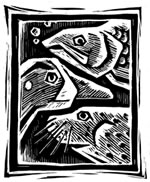- Home
- Restoration Projects
- Project Search
- Potential Impacts of Oiled Mussel Beds on Higher Organisms: Contamination of Black Oystercatchers Breeding on Persistently Oiled Sites in PWS 93035
Project Information
Title: Potential Impacts of Oiled Mussel Beds on Higher Organisms: Contamination of Black Oystercatchers Breeding on Persistently Oiled Sites in PWS 93035
Project Year and Number: 1993: 93035
Other Fiscal Years and Numbers for this Project: None
Principal Investigator (PI): Brad Andres (DOI )
Managing Agency: USFWS
Assisting Personnel: None
Research Location: Prince William Sound
Restoration Category: Monitoring
Injured Resources Addressed: Black Oystercatchers
Abstract: This study will directly document the exposure of black oystercatchers to oil remaining in the mussel beds and fine sediments of Prince William Sound after the EVOS. Exposure to oil will be documented by observing where birds forage and what they eat and by analyzing the feces of chicks for hydrocarbon contamination. The survival of chicks raised in the spill area, and recruitment of breeders into the spill area populations will be documented. Black oystercatchers do not avoid feeding in or delivering prey to chicks from persistently oiled substrates. Despite being fed more biomass, chicks raised at persistently oiled nest sites grow slower than chicks at unoiled nest sites. Females renesting at oiled sites produce fewer eggs of lesser volume than females renesting at unoiled sites.Proposal: Not Available
Reports:
Final Report: View (1,395 KB)
Publications from this Project: None Available
